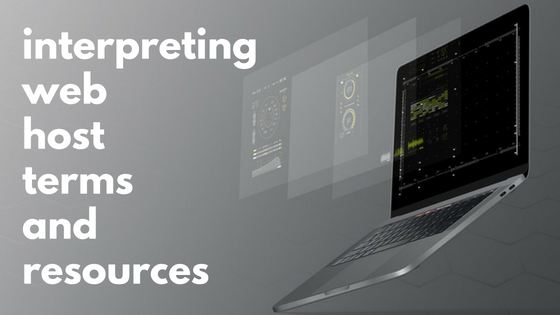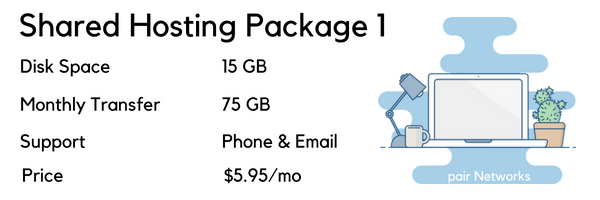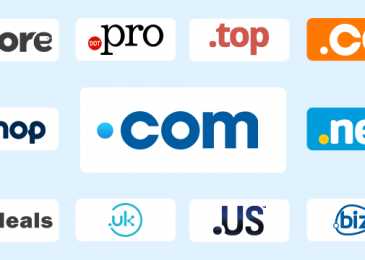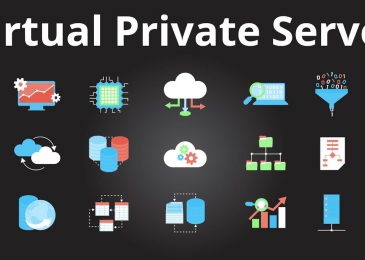After reviewing the checklist and gathering as much technical information about your site as possible, it’s time to understand what that information means. Once you understand what your website needs, you will find it easier to choose a host with compatible services. You’ll also learn the basic terminology and how to interpret the information web hosting companies provide on their websites.

LANGUAGES AND DATABASES
As you search for a web host, you’ll notice they support various coding languages and frameworks. At pair Networks, we support Apache Web Server, Ubuntu OS, FreeBSD OS, Linux OS, Full SSH Access, PHP, Perl, Python, MySQL, PostgreSQL, and Ruby on Rails. That’s a lot of tools!
If you’re using basic HTML, CSS, or JavaScript, your site shouldn’t require special hosting requirements. For other programming languages, make sure you know what version you need supported as well. A newer version of PHP may have different hosting requirements than an older one. A good host will support a variety of configurations, including custom configurations and multiple software versions.
You probably need a database for your site unless it’s a static HTML site. For dynamic sites like WordPress, figure out what kind of database your host provides and if it’s compatible with your site. You should also consider how many websites you have or plan to create in the future. If you have more than one site, you’ll probably need multiple databases as well.
WordPress requires support for PHP and MySQL databases. Most hosts already support the right versions of these (PHP 5.6 and MySQL 5.5), but it doesn’t hurt to verify. WordPress sites also require support for search engine optimized permalinks. An SEO permalink looks like this domain.com/my-post-title while the automatically generated permalink looks like this domain.com/p?=134. In order to improve the visibility of yours posts, your host will provide an Apache or Nginx based server with support for mod_rewrite.
For other content management systems, the requirements will usually match those of WordPress. You can check the download page or installation documents of your CMS to double check. Check the download pages for any themes, plugins, or extensions you have also. Most of the time, your various site tools won’t have special hosting requirements, but it’s better to be sure.
STATIC HTML AND ECOMMERCE SITES
Static HTML sites are less complex than dynamic sites. If you want to include a contact form on your static site, consider how the form will work. How will your contact form translate submissions to email scripts? However you decide to enable your form, you’ll need to make sure it’s supported by your host.
If you’re building an ecommerce website, you could use either a standalone system or a plugin-based system. A standalone system like Shopsite is essentially a specialized type of CMS with higher levels of security to protect your customers. For both plugin-based systems such as WP-eCommerce and standalone systems, make sure your host supports them and additional security. You will need to protect your customers information with extra security measures like SSL certificates.
INTERPRETING WEB HOSTING RESOURCES
 In addition to development environment and database requirements, there are several more terms you’ll notice as you research web hosting providers. Comparing web hosting resources like backups and security isn’t always easy. What do we mean by “automated backups” and how do you know if you need an SSL certificate? What is bandwidth and how much does your site need? Here’s what you need to know:
In addition to development environment and database requirements, there are several more terms you’ll notice as you research web hosting providers. Comparing web hosting resources like backups and security isn’t always easy. What do we mean by “automated backups” and how do you know if you need an SSL certificate? What is bandwidth and how much does your site need? Here’s what you need to know:
ACCOUNT MANAGEMENT
You can manage your website and your web hosting resources from an account dashboard. At pair Networks we created a management dashboard or account control center known as the ACC. While most hosts use the third-party control management tool known as cPanel, pair’s custom-built ACC makes it easier for our customers to manage their site and resources.
SECURITY AND BACKUPS
When it comes to website security, you can never be too careful. As you compare hosting providers, you will see security measures such as SSL certificates, IP deny, backups, and malware protection. How much security does your site need?
SSL CERTIFICATES
Many companies provide access to secure sockets layer (SSL) certificates. SSL certificates essentially offer an extra layer of protection for your website visitors. If they interact with your site by submitting an email address or credit card number, that information is vulnerable as it travels from their browser to your server. An SSL certificate protects that information as it travels. SSL certificates will also help your site’s search ranking.
You can purchase SSL certs through your host and manage them from your account. pair Networks offers SSL certificates for as little as $10/year or even use our free Let’s Encrypt certificate option.
BACKUPS
Many hosts offer some kind of backup system for your site. Having backups in place will help you avoid losing work to software malfunctions or cyber attacks. Check to see which web hosts implement routine backups. Many hosts will restore your site from an automated backup service that comes with your hosting account. Depending on the host, you may be charged a fee to access and restore the backup. At pair Networks, we offer a variety of backup solutions including scheduled backups, disaster recovery backups, and configurable automatic backups. You can learn more about our automated backups with our guide: Back that Site Up: A Backup Guide through the ACC.
MALWARE PROTECTION
Malware describes hostile or intrusive software that can take over your computer. This malicious software can result in stolen information like credit card numbers, outgoing spam emails, sluggish browser speeds, and more damage. While choosing a web host, check to see what they can offer when it comes to malware protection.
EMAIL HOSTING AND DOMAINS
How many websites are you building? Many basic hosting packages allow you to only register and host one domain with multiple subdomains. If you plan on adding more top level domains in the future, make sure your host provides easy scalability. Without a seamless upgrade path, you could be stuck with services too limited for your needs.
If you plan on having a custom email address to match your domain name, make sure your new host supports email hosting. You should also see how many email addresses you can get with your hosting package. (Most of pair Networks hosting accounts come with up to 500 custom email addresses.)
DATA STORAGE AND BANDWIDTH
How large your website is will determine how much data storage you need. Your estimated monthly website traffic will determine your bandwidth needs. Consider pair Networks Shared Hosting Package 1 which offers 15 GB of disk space and 75 GB of bandwidth monthly.
 1 GB (1000 MB) of data stores thousands of text-only emails, 200 four-minute songs, or a 30 minute episode of a TV show. A typical web page including a mix of images, text, and code will take up about 1.6 MB of space. Generally the majority of personal and small business sites online are well-suited for Shared hosting when it comes to storage space.
1 GB (1000 MB) of data stores thousands of text-only emails, 200 four-minute songs, or a 30 minute episode of a TV show. A typical web page including a mix of images, text, and code will take up about 1.6 MB of space. Generally the majority of personal and small business sites online are well-suited for Shared hosting when it comes to storage space.
Your bandwidth will require more space because it’s essentially your website’s data multiplied by your monthly web traffic. So, if you anticipate a high volume of email correspondence or intend to use many dynamic elements like video, then a VPS or Dedicated hosting plan may fit your needs better. Calculating how much bandwidth you need will be next to impossible. It’s often easier to start with a small plan and then upgrade as needed.
Note: Always check the terms of service when a host promises unmetered bandwidth. Unmetered often doesn’t mean unlimited and could actually result in your site getting shut down without warning if you exceed a certain point.
Finding a flexible and transparent host with easily scalable services is essential if you’re not sure what you need yet or if you plan on growing in the future. Some pair Networks customers will even scale their services seasonally based on when they get more web traffic.
SUPPORT
Different hosts will use different terminology to describe the support they provide for each service. The most common descriptors are unmanaged, managed, and fully managed server hosting. Unmanaged hosting plans are often cheaper, but you won’t receive routine support or management from your provider. With an unmanaged plan, your host will provide hardware and network maintenance, but no software support. You have complete control over your server, but if something goes wrong or you need to install software, you’re on your own.
With a managed hosting account, your host will support everything software, hardware, and networks related. Managed hosting means less work for you. It doesn’t require as much technical expertise as unmanaged hosting because you have expert support staff available to help you if something goes wrong.
Fully-managed support services are much more comprehensive. pair Networks offers fully-managed hosting, which means we do everything. We provide regular support and help you learn to use your new hosting services. If something breaks, we’ll help you fix it no matter the cause.
Read more What type of hosting do you need?
_______________________________________________________________________________
For more details about our seo service packages, pls contact us
BIGBIGSEO Team
Email: bigbigseo@gmail.com
Skype: bigbigseo
https://www.facebook.com/bigbigseo
Thank you!




